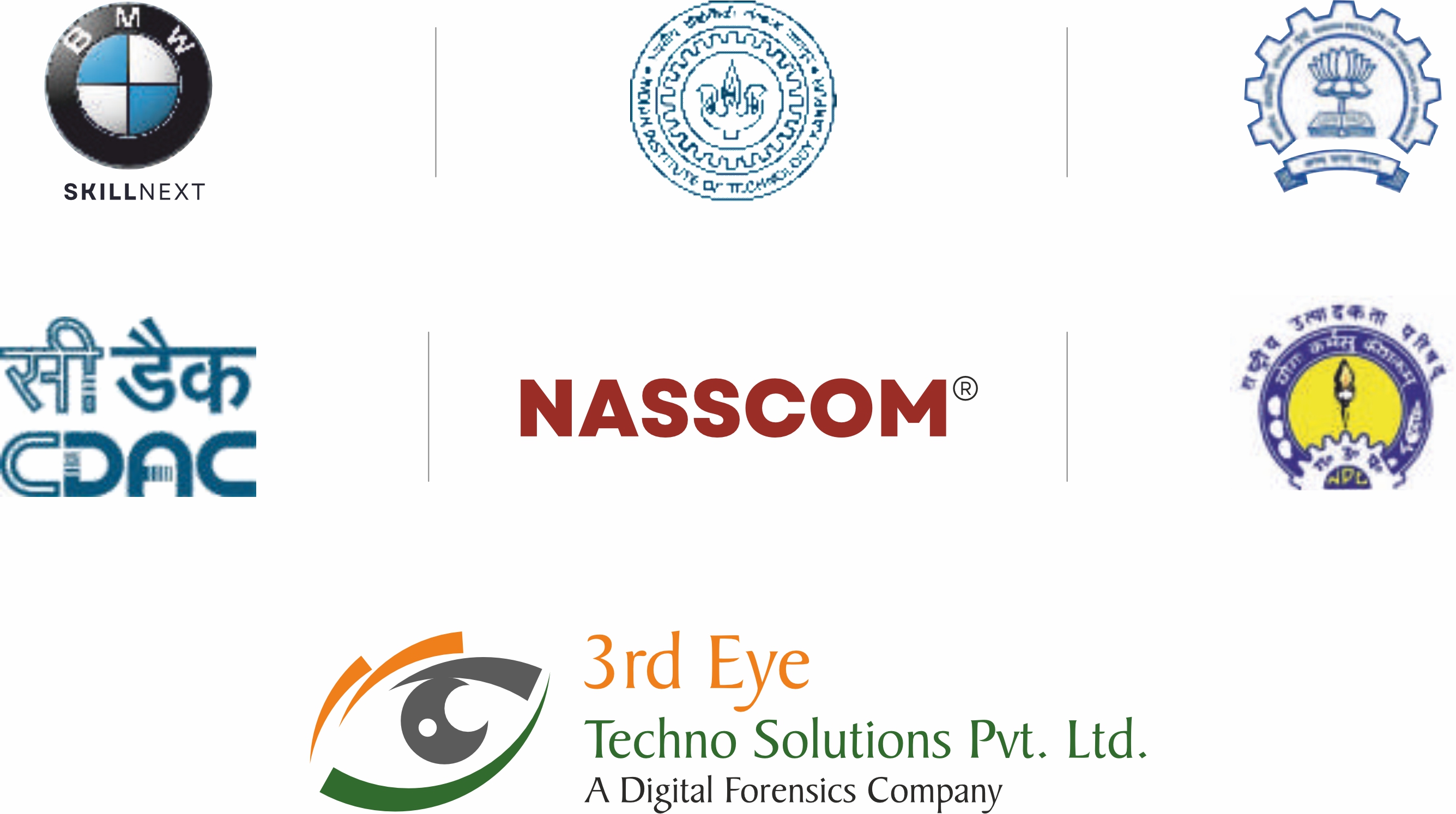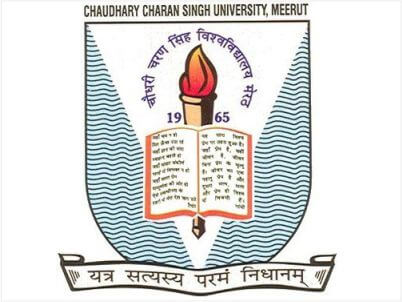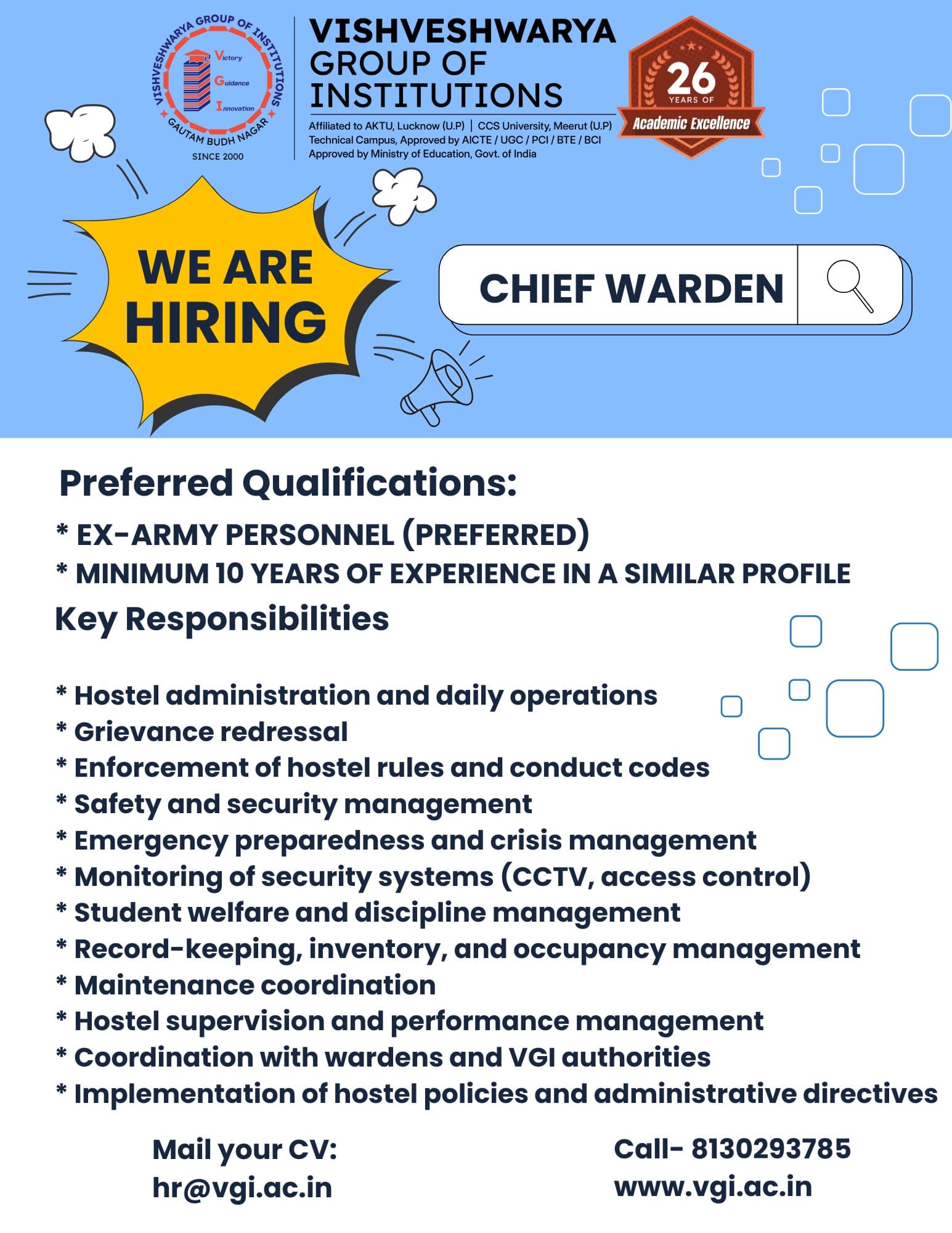B. Tech
Computer Science & Engineering
- About Department
- POs, PSOs and PEOs
- DAC
- HOD's Desk
- Our USP
- Labs & Infra
- Collaboration
- Syllabus
- Eligibility & Program Info
Vision
To produce Computer Science and Engineering graduates with problem-solving abilities, research aptitude, teamwork, and ethical values to meet the needs of industry and society. The department will strive to be the most effective research and innovative centre in the field of information and other fields focused on empowering people to provide scientific and social assistance.
Mission
The mission of the Computer Science and Engineering Department is to shape the students to be innovative, entrepreneurial, supportive, assured, and intellectual.
- To prepare students with strong technical skills and analytical minds for real time industrial needs.
- To nurture the students to contribute to research and innovation for nation building.
- To develop students with leadership qualities to be entrepreneurs and contribute their services to society.
Develop a student’s technical skills through innovation and leadership. Inculcate the values of work ethic, social concern, environmental protection, and lifelong learning.
About Department
Since its inception in 2005, the Computer Science and Engineering Department at VGI has been dedicated to equipping students for real-world challenges. This field encompasses the scientific and practical dimensions of computation and its diverse applications, systematically delving into the feasibility, structure, expression, and mechanization of procedures involved in acquiring, representing, processing, storing, communicating, and accessing information.
The department's core mission is centered on delivering high-quality technical education and fostering cutting-edge professionalism within the realm of Computer Science and Engineering. A notable feature is the Advanced Software Development Centre, exclusively dedicated to in-house software development, equipped with a variety of platforms for software work.
In the broader context, computer science plays a pivotal role in constructing essential infrastructure for our daily lives, shaping how we work, learn, and connect. It serves as a driving force behind societal progress and scientific discovery, permeating every facet of our existence.
Choosing Computer Science and Engineering (CSE) is a popular option among engineering aspirants, and at VGI, we've partnered with HCL Technologies. This collaboration aims to bridge the gap between industry and academia by providing training in modular formats. Our focus areas include Artificial Intelligence (AI), Machine Learning, Data Science and Analytics, Virtual Reality/Augmented Reality (AR/VR), and Cyber Security. It's a dynamic partnership that adds value through a diverse range of courses.
Program Outcomes (POs)
PO-1: Engineering knowledge: Utilize understanding of physics, math, engineering foundations, and engineering specialization to solve challenging engineering issues.
PO-2: Problem analysis: Identify, formulate, review research literature, and analyze complex computer engineering problems reaching substantiated conclusions using first principles of mathematics, natural sciences, and engineering sciences.
PO-3: Design/development of solutions: Design solutions for complex computer engineering problems and design system components or processes that meet the specific needs with appropriate considerations for the public health and safety, and the cultural, societal, and environmental considerations.
PO-4: Conduct investigations of complex problems: Use research-based knowledge and research methods including design of experiments, analysis and interpretation of data, and synthesis of the information to provide conclusions
PO-5: Modern tool usage: Create, select, and apply appropriate techniques, resources, and modern engineering and IT tools including prediction and modeling to complex engineering activities with an understanding of the limitations
PO-6: The engineer and society: Apply reasoning informed by the contextual knowledge to assess societal, health, safety, legal, and cultural issues and the consequent relevance to the professional engineering practices
PO-7: Environment and sustainability: Understand the impact of professional engineering solutions in societal and environmental contexts, demonstrate the knowledge of, and need for sustainable development
PO-8: Ethics: Apply ethical principles and commit to professional ethics, responsibilities, and norms of the engineering practices
PO-9: Individual and team work: Function effectively as an individual, and as a member or leader in diverse teams, and in multidisciplinary settings
PO-10: Communications: Communicate effectively on complex engineering activities with the engineering community and with society, such as being able to comprehend and write effective reports and design documentation, make effective presentations, and give and receive clear instructions
PO-11: Project management and finance: Demonstrate knowledge and understanding of the engineering and management principles and apply these to one’s own work, as a member and leader in a team, to manage projects and in multidisciplinary environments.
PO-12: Life-long learning: Recognize the need for, and have the preparation and ability to engage in independent and life learning in the broadest context of technological change.
Program Specific Outcomes (PSO)
PSO-1: (Proficiency in Real life problem solving, Algorithm Design) Exhibit professional ethics and implement the concepts of Computer Science & Engineering, Software Development, Problem solving techniques, and Algorithm Design and implementation with the state-of- the-art technology and contemporary skills.
PSO 2: (Proficiency in core technical areas of Computer Science & Engineering) To introduce upcoming domains like Big Data, Cloud Computing, Artificial Intelligence, Robotics, Data analytics, IoT, and Machine Learning to develop insights for problem solving.
PSO 3: (Proficiency in program Design and coding and analyses / interprets data) Implement and correlate their theoretical knowledge by program development, analysis of the problem, and analyse/interpret the results for appropriate conclusions and recommendations to a real-world software engineering problem with a significant perspective of the industrial, societal and real world.
Program Educational Objectives (PEOs)
PEO-1: Prepare graduates to have knowledge and competency for a career related to Computer Science.
PEO-2: Possess a solid technological background and the ability to assess data, formulate, and tackle industrial challenges to find workable solutions.
PEO-3: Make a prosperous career in research, industry, or higher education.
PEO-4: possess a passion for lifelong learning and the ability to work on interdisciplinary initiatives.
Department Advisory Committee
The Department Advisory Committee (DAC) has been formed to monitor the progress of the program. The Committee develops and recommends new or revised goals and objectives of the program. The DAC consists of HOD and faculty members of the department to evaluate the performance of a program review/monitor/assess a specific program. The Department Advisory Committee interacts and maintains liaison with key stakeholders.
- The Department Advisory Committee is chaired by HOD who receives the report of the Department Advisory Committee and monitors the progress of the program.
- The committee reviews the curriculum of the CSE department to ensure it aligns with the latest industry trends, technological advancements, and educational standards.
- The committee establishes mechanisms for assessing and evaluating student learning outcomes, including examinations, assignments, projects, and other assessment tools.
- The committee organizes workshops, seminars, and training sessions (NPTEL, Spoken tutorial, FDP, STTP / Guest lecturers monitoring) for faculty members to enhance their teaching skills, stay updated with the latest technologies, and improve their research capabilities.
- The DAC assesses the adequacy of infrastructure, including laboratories, classrooms, computing resources, and library facilities, to support the educational objectives of the department.
- The committee ensures the availability of academic support services for students, such as counselling, tutoring, and career guidance, to help them succeed academically and professionally.
- The DAC foster collaboration with industry partners to provide students with opportunities for internships, projects, and placements, ensuring that the curriculum remains relevant to the needs of the industry.
- The committee maintains records of all activities related to accreditation, including documentation of curriculum updates, assessment results, faculty development initiatives, and industry collaborations. They prepare reports for submission to the NBA accrediting body.
- The committee continuously monitors and evaluates the quality of education in the department, identifies areas for improvement, and implements corrective actions to enhance the overall quality of the program.
The following members are nominated and approved for the constitution of the Department Advisory Committee for the academic year 2023-2024.
| Sr. No | DAC Members | Designation & Organization | Position in DAC |
| 1 | Dr. Bibek Kumar | Associate Professor & Head, Department of Computer Science Engineering, VGI Group of Institutions. | Convenor |
| 2 | Dr. Waseem Khan | Associate Professor, Department of Computer Science Engineering, VGI Group of Institutions. | Member |
| 3 | Dr. Prachi Tripathi | Associate Professor and Head, Department of Electronics and Communication Engineering, VGI Group of Institutions. | Member |
| 4 | Dr. Shweta Chauhan | Post Doctoral Researcher, IIT Ropar | R&D Member |
| 5 | Mr. Ankit Sharma | Manager, D&E, NCS, Bharat Electronics Limited, Ghaziabad | Industry Expert |
| 6 | Dr. Vaibhav Sharma | Senior Director, Association of Data Scientists, Bangalore. | Industry Expert |
| 7 | Mr. Sagar Chandra | Deputy Manager, Reliance Industries Limited, Gurgaon | Alumni |
| 8 | Mr. Aniket | IV-year student, Department of CSE, VGI Group of Institutions | Student |

HOD's Desk
Welcome to The Department of Computer Science & Engineering, VGI
The Department of Computer Science & Engineering (CSE) at VGI is committed to ensuring exceptional career opportunities for its students. Our focus involves establishing stronger industry connections, fostering a research-oriented culture from the outset, and delivering seamless education through the latest available technology. The department boasts excellent infrastructure and highly qualified faculty members, contributing to a high-quality educational environment that emphasizes interaction among students, parents, and staff. The Training and Placement Cell ensures a promising future for our students.
We actively promote innovation in research, teaching methodology, and service to the local community and industry. Both our faculty members and students are dedicated to achieving advancements in the cutting-edge technology within Computer Science and Engineering. I extend an invitation for you to join us in our endeavors as we elevate the Department of Computer Science & Engineering at VGI to new heights. Lastly, I extend my best wishes to all students and faculty members for a successful academic career.
Sincerely, and with best wishes,
Department's USP
- Embrace industry-standard, hands-on education.
- Enriching learning experiences with Guest Lectures/Expert Talks from seasoned faculty members and industry experts.
- Foster professional growth with a plethora of add-on certification programs, value-added courses, and short-term courses, boasting over 500 certificates.
- Alumni success stories include professionals in reputable MNCs, government agencies, and thriving entrepreneurs.
- The faculty comprises highly qualified members with a blend of industry and core teaching expertise.
- A strong culture of research among both faculty members and students.
- Industry-centric learning emphasized through continuous industry connections, industrial trips, projects, and internships.
- Faculty members boast over 6 patents and 100+ research papers, showcasing their innovation and research prowess.
- Regular upskilling of faculty members through FDPs, workshops, and seminars.
- The department’s Hi-Tech Labs, dedicated to AI & ML, Cyber Security, and all advanced application development.
Laboratories & Infrastructure
The laboratories within the department are equipped with computers featuring the latest configurations, networked seamlessly to provide students with comprehensive facilities for in-depth exploration and understanding of computer science concepts learned in classrooms. At the Department of Computer Science & Engineering, VGI, our focus is on cultivating globally competitive professionals proficient in both hardware and software aspects of computers. These professionals are groomed to innovate and contribute significantly to the growth of the Indian economy in the current Information Technology era.
The program is designed to facilitate students in grasping fundamental concepts and skills of Computer Science, with applications spanning software development, hardware technology, and networking across diverse areas. The CSE department at VGI currently hosts the following state-of-the-art laboratories:
Projects Lab
The lab, housing 30 systems interconnected via LAN with a 5Kva online UPS for continuous power backup, serves as a hub for students in their VII and VIII semesters. Here, they undertake Minor and Major Projects guided by their respective Project In-charges, utilizing various languages and platforms. The focus areas include image processing, NLP, Wireless Networks, Artificial Intelligence, Data warehousing, and Multimedia. The Projects Laboratory plays a crucial role in promoting practical, hands-on education for both undergraduate and postgraduate students.
Programming Lab
The Programming lab is dedicated to fostering programming skills among students, allowing them to specialize in their respective subjects. It is equipped with Optiplex 330 PCs featuring a Pentium Core II dual processor, 160 GB dual HDD, and an APC UPS for power backup. This lab is specifically designed for conducting programming language labs, including VB.Net, SQL Server Enterprise, Java, C++, and Graphics in C, as well as mini projects.
Operating Systems Lab
The lab is outfitted with the latest Optiplex Computer systems, offering students exposure to Operating Systems & Systems Development. It covers instruction on UNIX, Red Hat Linux, Ms-Windows Operating Systems, and Data Structures. Primarily designed for teaching operating system concepts related to LINUX and UNIX, the lab features cutting-edge hardware and software. Real-time applications are emphasized alongside the syllabus, ensuring students can apply their knowledge in day-to-day scenarios.
Microprocessor Lab
This foundational laboratory is dedicated to microprocessor education. It features a range of microprocessor and microcontroller trainer kits, complete with interface modules for illustrating detailed applications. The lab's objective is to familiarize students with both the software and hardware aspects of microprocessors, enabling them to gain valuable experience and meet the demands of the microprocessor era.
Database Lab
The lab is extensively utilized by students to explore all facets of Database Management System (DBMS), equipped with software such as MySQL Version 5, Turbo "C," and MS Office. It serves as a hands-on training ground for Database Management System (DBMS) Lab, Engineering Computational Methods (ECM), and Data Structure (DS). Featuring 30 computers with the latest configurations and a dedicated virtual LAN, the lab facilitates practical learning experiences. The emphasis is on providing students with the skills to manage, modify, and update data accurately, addressing the modern-day need for automated systems in data management.
Cyber Security Lab
Cybersecurity is a crucial component of technological advancement, serving as a protective shield against malicious attacks. It encompasses a variety of practices to safeguard computer operating systems, networks, and data from cyber threats, playing a vital role in the 21st century where computers, smartphones, and the internet are essential. The Cyber Security Lab offers students access to modern technologies and tools, facilitating the learning of both business and technical aspects of information security. Additionally, the lab provides resources for faculty members and students to engage in research projects.
Computer Network Lab
The well-established lab, equipped with i5 Processor and 16GB PCs and Netsim, Ns2 Simulators, serves as a research hub for students and faculty members. It focuses on wired and wireless network research, with an emphasis on network protocol implementation and an in-depth study of the TCP/IP protocol stack for computer communication. The lab is dedicated to experimental research in communication networking, showcasing recent contributions in wireless networks and network security.
AI and Machine Learning Lab
The Artificial Intelligence and Machine Learning (AIML) lab at VGI is a dedicated research facility focused on addressing real-world challenges within the realms of Artificial Intelligence and Machine Learning. The lab conducts extensive research on computationally complex problems related to modeling uncertainty, developing predictive models, and facilitating decision-making processes.
Comprising over 50 students and researchers, both internal and external, the AIML lab is an interdisciplinary hub that brings together expertise in computer vision, machine learning, and natural language processing. Research efforts span fundamental advancements in these areas, encompassing cross-cutting themes such as multi-modal deep learning, human-compatible AI, and interdisciplinary connections with scientific disciplines and humanities.
The lab serves as a computing platform for various programming languages, including Python, R, and Open CV. It provides essential resources for building a cohesive understanding of Machine Learning and Artificial Intelligence, covering models and algorithms. AIML lab members actively seek cutting-edge, problem-based solutions for data mining, computer vision, and machine learning challenges across diverse application areas involving data analytics.
Our Collaboration

Syllabus
Mode
Regular
Seats
60
Level
Graduate
Duration
4 Years
















